Thich Nat Han: “Le Quattro Dimore dell’Amore”
-
Amore Universale o Gentilezza Amorevole
-
Compassione, condivisione del dolore (karuna)
-
Equanimità – Inclusività
-
Gioia compartecipe (mudità). Continue reading
Thich Nat Han: “Le Quattro Dimore dell’Amore”
Amore Universale o Gentilezza Amorevole
Compassione, condivisione del dolore (karuna)
Equanimità – Inclusività
Gioia compartecipe (mudità). Continue reading

Dzogchen Ponlop Rinpoche: Born to be Free
Rebel Buddha is an exploration of what it means to be free and how it is that we can become free. Although we may vote for the head of our government, marry for love, and worship the divine or mundane powers of our choice, most of us don’t really feel free in our day-to-day lives. When we talk about freedom, we’re also talking about its opposite—bondage, lack of independence, being subject to the control of something or someone outside ourselves. No one likes it, and when we find ourselves in that situation, we quickly start trying to figure out a way around it. Any restriction on our “life, liberty, and pursuit of happiness” arouses fierce resistance. When our happiness and freedom are at stake, we become capable of transforming ourselves into rebels. Continue reading
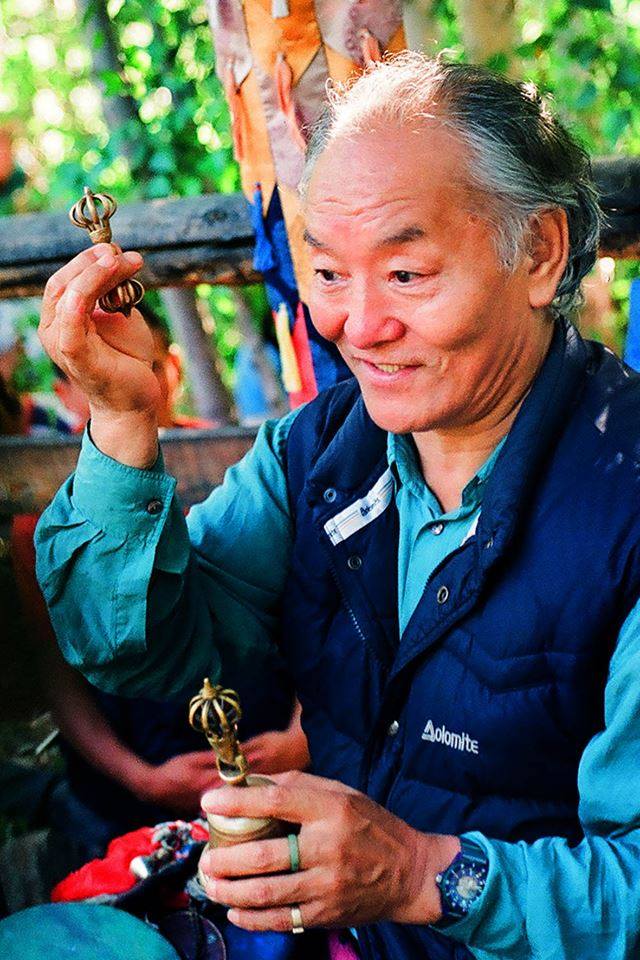
Chögyal Namkhai Norbu: Se rimani in questa conoscenza, nel modo in cui ti manifesti anche quando parli con altre persone, la tua visione e la tua situazione cambia.
Namkhai Norbu Rinpoche: Il senso di colpa.
Le persone che vivono in Occidente hanno l’abitudine di vivere nel passato e hanno la tendenza a pensare tipo: “Molti anni fa, ho sbagliato e mi sento in colpa. “Pensaci prima di andare a letto invece di dormire serenamente e fare sogni interessanti. State pensando “mi ricordo tutto il male che ho fatto” ecc. Il giorno dopo ti svegli incazzato. Questo non va bene. È inutile. Il passato è passato. Dimenticatelo! Se vuoi scrivere un libro su quello che hai fatto due anni fa, allora prova a ricordarlo e scrivilo. Ma se hai fatto qualcosa di sbagliato, è passato.. Se pensi di aver fatto qualcosa di male in passato e fai pratica per pulirlo – ottimo, la pratica è buona comunque per pulire. Puoi dedicarlo al passato, al futuro e a tutto in generale. Ma poi non pensare troppo al passato. Sii nel momento presente!
Essere presenti nel presente ti permette di ricevere gioia nella tua vita. La vita non è poi così male finché sei vivo. Poi un giorno sparisci. Fino ad allora, ci stiamo godendo, facendo del nostro meglio, rilassati. Questo è il primo. Perché non possiamo rilassarci? Perché pensiamo sempre: “Ecco, basta così. ” Ieri qualcuno ha detto… “? Continuiamo a pensarci ancora e ancora, arrabbiandoci e arrabbiati. Lascia perdere e goditelo!
Se non riesci a divertirti, vieni a cantare e ballare con me. Questo ti aiuterà a non pensare a nessuna sciocchezza. Continue reading
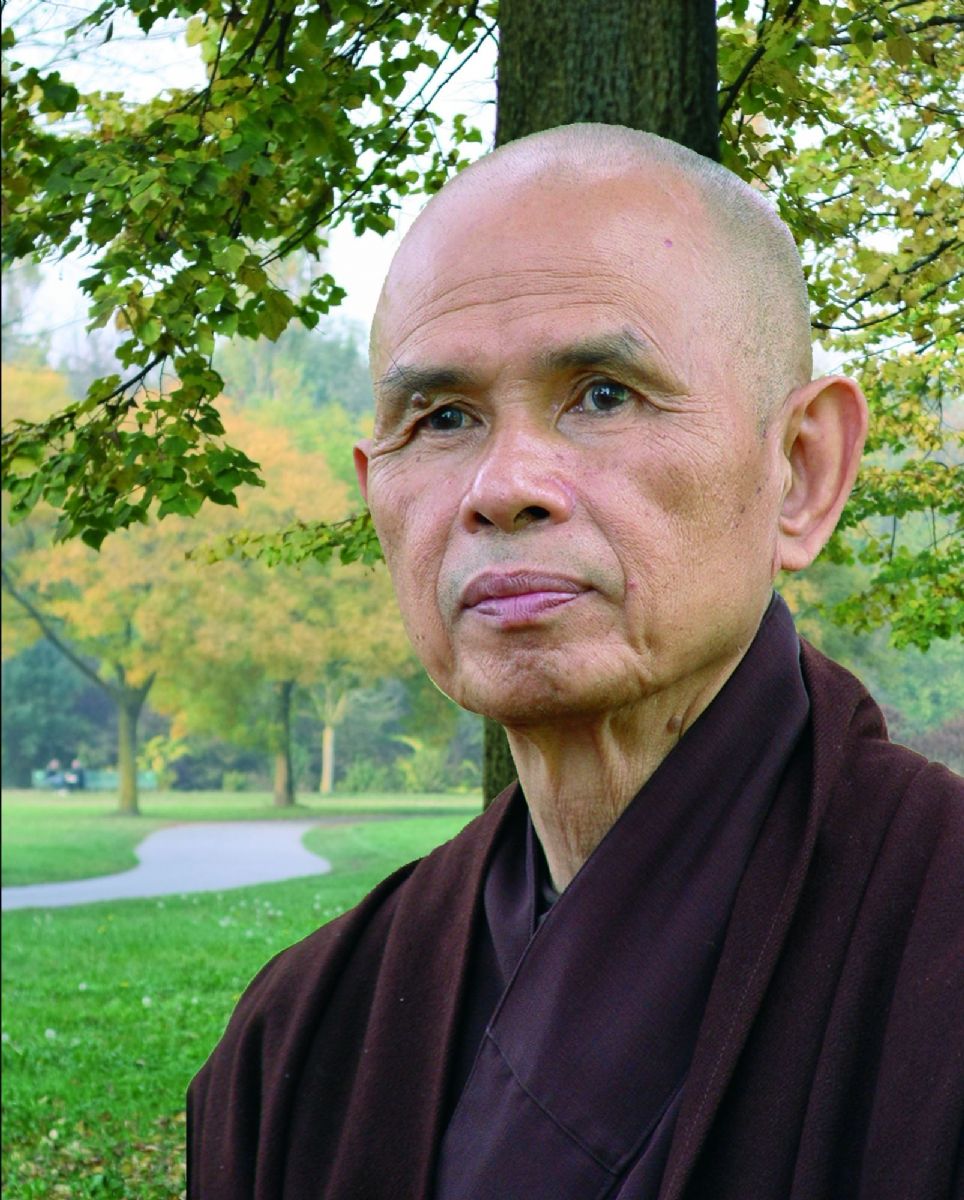
Nella meditazione del pasto mangiamo in silenzio. Questo ci permette di gustare realmente il cibo e di entrare profondamente in contatto con le persone che ci siedono attorno. La prima volta che ti capiterà di mangiare in silenzio potrà sembrarti strano o innaturale, ma dopo un po’ ti accorgerai che un pasto in silenzio può dare molta felicità, pace e comprensione profonda.
Mangiare insieme è una vera e propria meditazione. Possiamo iniziare a praticare fin da quando ci serviamo da mangiare: riempiendo il piatto siamo consapevoli che molti elementi – pioggia, sole, terra, aria e amore – sono riuniti a formare quel cibo meraviglioso. Vediamo che attraverso quel cibo l’intero universo sostiene la nostra esistenza. Mentre ci serviamo siamo consapevoli degli amici che ci circondano, e prendiamo la quantità di cibo che è giusta per noi. Prima di iniziare a mangiare la campana viene invitata a suonare tre volte, e possiamo allora godere del nostro respiro mentre pratichiamo le cinque contemplazioni del cibo: Continue reading

Dr. Alexander Berzin: Impegnati per superare i tuoi difetti e realizzare appieno i tuoi potenziali positivi
Alexander Berzin: Consigli buddhisti per la vita
A volte ci sentiamo persi e proprio non sappiamo come affrontare le sfide della vita e conseguire i nostri obiettivi positivi. Siamo anche perplessi su come andare più d’accordo con gli altri. Quando consideriamo gli insegnamenti buddhisti tradizionali, troviamo moltissime linee guida pratiche che sono utili per chiunque, in qualsiasi momento e in ogni cultura.
Qualità da coltivare per aiutare gli altri
Generosità – [essere generosi] con il vostro tempo e con i vostri averi, consigliare ed aiutare gli altri;
Autodisciplina – per evitare maniere
distruttive di comportarsi o di parlare, e per aiutare gli altri in qualunque modo possibile;
Pazienza – con le difficoltà [che sorgono] nell’aiutare gli altri, in modo tale da non arrabbiarsi o essere frustrati;
Coraggio e resistenza – per andare avanti, a prescindere da quanto le cose diventino difficili;
Stabilità mentale ed emotiva – per rimanere concentrati e non andare fuori strada;
Discernimento – tra ciò che è utile e ciò che è dannoso, e tra cosa è appropriato e cosa non lo è.
Modi per essere un’influenza positiva sugli altri
 The Noble Mahāyāna Sūtra “The Jewel Mine”, Āryaratnākaranāmamahāyānasūtra,
The Noble Mahāyāna Sūtra “The Jewel Mine”, Āryaratnākaranāmamahāyānasūtra,
’phags pa dkon mchog ’byung gnas zhes bya ba theg pa chen po’i mdo
s.1 In this sūtra the Buddha Śākyamuni recounts how the thus-gone Sarvārthasiddha purified the buddha realms in his domain. In his explanation, the Buddha Śākyamuni emphasizes the view of the Great Vehicle, which he explains as the fundamental basis for all bodhisattvas who aspire to attain liberation. The attendant topics taught by the Buddha are the six perfections of generosity, discipline, patience, diligence, concentration, and wisdom. The Buddha explains each of these six perfections in three distinct ways as he recounts the past lives of the buddha Sarvārthasiddha. First, he describes how Sarvārthasiddha learned the practices that purify buddha realms, namely the six perfections. Next, he explains how to seal these six virtuous practices with the correct view so that they become perfections. Finally, he recounts how Sarvārthasiddha, as a bodhisattva, received instructions for enhancing the potency of the perfections. Continue reading
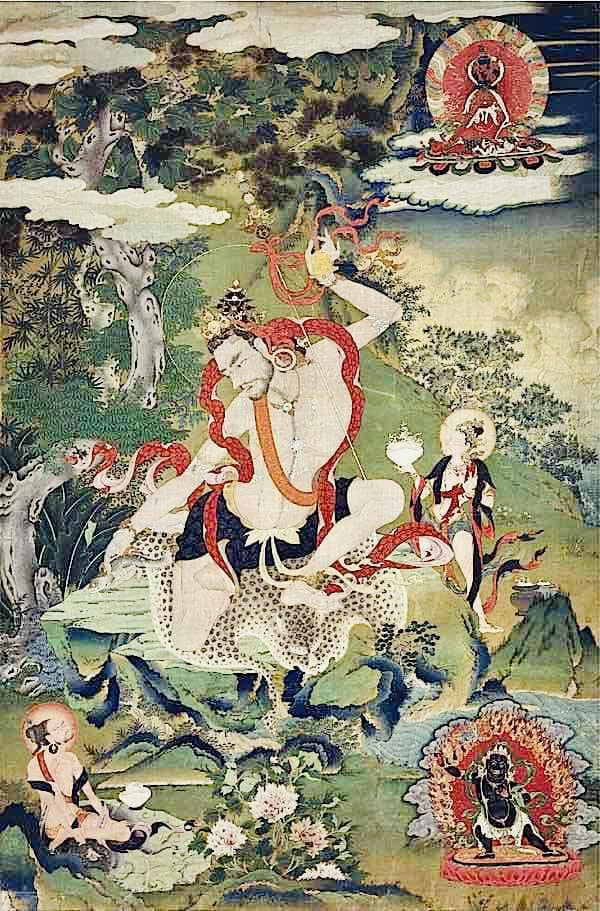
Mahasiddha Tilopa: Fermate tutte le attività
Fermate tutte le attività fisiche: sedetevi naturalmente a vostro agio.
Non parlare e non parlare: lascia che il suono sia vuoto, come un’eco.
Non pensare a niente: guarda l’esperienza oltre il pensiero.
Il tuo corpo non ha nucleo, vuoto come il bambù.
La tua mente va oltre il pensiero, aperta come lo spazio.
Lascia andare il controllo e riposa lì.
La mente senza proiezione è Mahamudra.
Allenati e sviluppa questo e arriverai al risveglio più profondo.

Chögyal Namkhai Norbu: So, first of all, we need to understand the basis and work with it very well.
Chögyal Namkhai Norbu: What is integration?
What does ‘direct introduction’ mean? It does not mean reading a book or making a commentary on a book by Garab Dorje or a text like a Tantra. It means touching something as if you were being burnt. This must be understood. Especially people who already know and have followed the teaching may feel, “I am an old practitioner”. You really must observe a little what ‘old’ means in this case. Each of you should observe your own practice. How do you feel when you meet someone who may be unpleasant or disturbing? Do you really have the capacity to integrate this feeling? Do you feel the same when you meet a person you love very much, such as friends, and when you meet someone unpleasant? If, through distraction, you hate or get angry, but with presence are immediately able to liberate this feeling, it means that you are practitioners and that practice is something living in yourselves. It is not so difficult to understand that the function of the teaching is something concrete. Continue reading
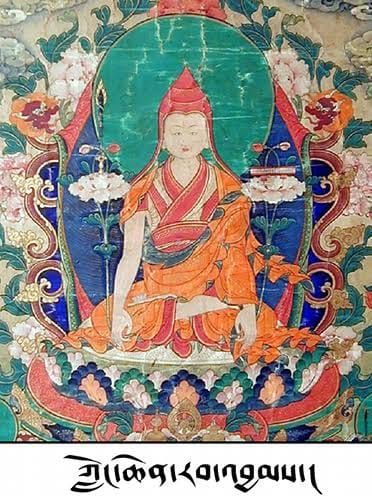
Longchenpa
Longchen Rabjam Drime Wozer (1308 – 1364): Homage to glorious Samantabhadra!
Naturally occurring timeless awareness-utterly lucid awakened mind, is something marvelous and superb, primordially and spontaneously present. It is the treasury from which comes the universe of appearances and possibilities, whether of samsara or nirvana.
Homage to that unwavering state, free of elaboration.
The very pinnacle of spiritual approaches, the expanse in which the sun and moon orbit the most majestic mountain, is the expanse of the vajra heart essence-spontaneously present and utterly lucid, the expanse of the naturally settled state that entails no effort or achievement. Listen as I explain this superb, timelessly infinite expanse.
WITHIN THE EXPANSE of spontaneous presence is the ground for all that arises. Empty in essence, continuous by nature, it has never existed as anything whatsoever, yet arises as anything at all.
Within the expanse of the three kayas, although samsara and nirvana arise naturally, they do not stray from basic space-such is the blissful realm that is the true nature of phenomena. Continue reading
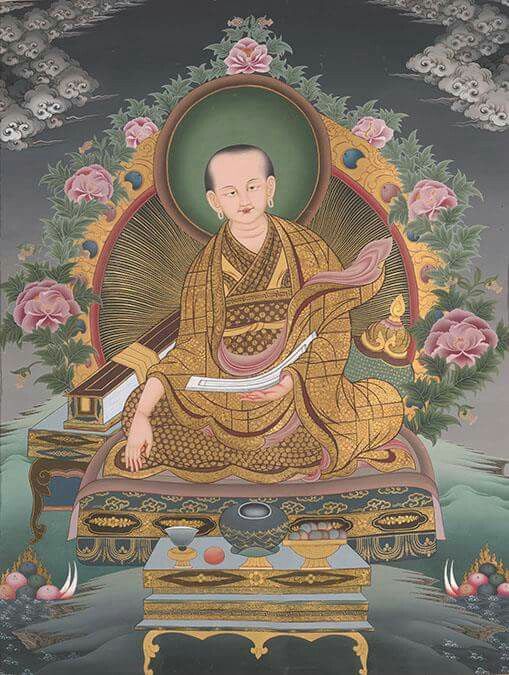
Gheshe Chekawa
Geshe Chekawa: L’addestramento mentale in sette punti. Edizione annotata di Togme Zangpo.
Secondo punto: L’addestramento effettivo nella bodhicitta.
L’addestramento nella bodhicitta più profondo.
Pondera che i fenomeni sono come un sogno. Vedi distintamente la natura fondamentale della consapevolezza che non ha nessuna nascita. L’opponente stesso si libera da solo nel proprio posto. La natura essenziale del sentiero è di stabilizzarsi in uno stato della base onnicomprensiva. Tra le sessioni, agisci come una persona illusoria.
Addestrati sia nell’offrire che nel ricevere, alternandoli, agganciando questi due al respiro.
(Riguardo ai) tre oggetti [quegli esseri che trovo attraenti, non attraenti, o neutri], (ricevi) i tre atteggiamenti tossici [il desiderio bramoso, la repulsione, o l’ingenuità] e (offri) le tre radici di ciò che è costruttivo [distacco, imperturbabilità, o assenza di ingenuità], (mentre) ti addestri con le parole in tutti i sentieri del comportamento.
Quanto all’ordine di ricevere, devo cominciare da me stesso.